A Recent Study Says Coffee May Help Fight Inflammation
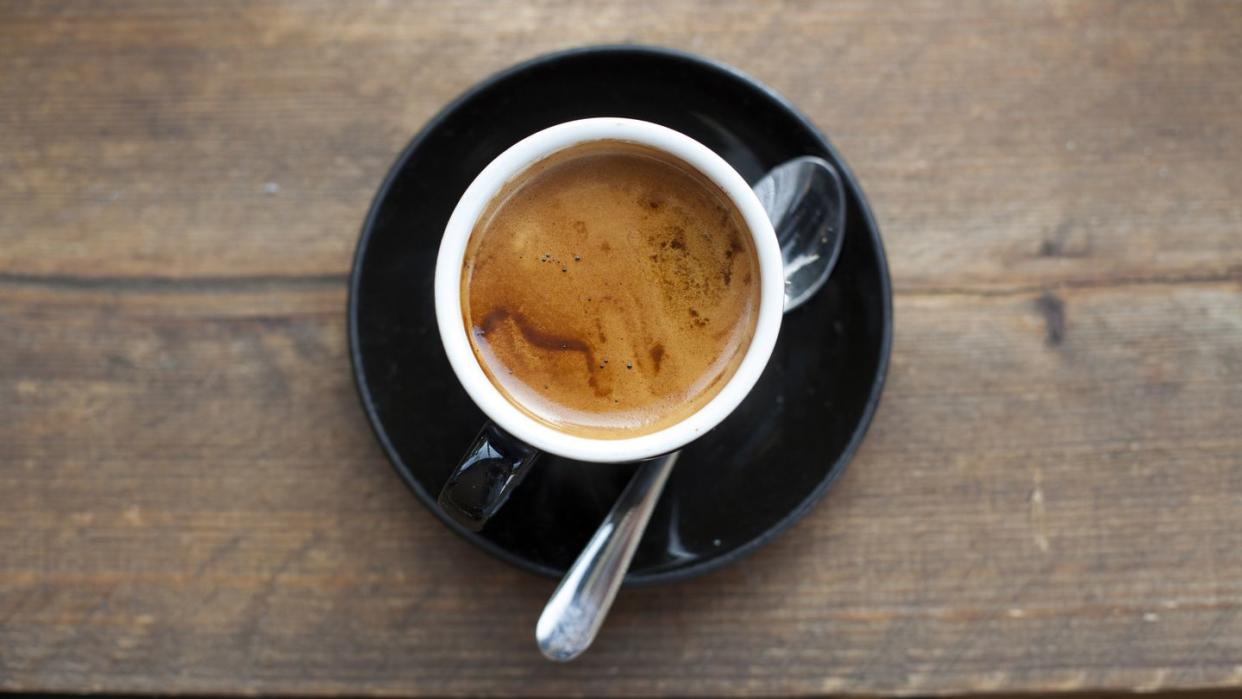
"Hearst Magazines and Yahoo may earn commission or revenue on some items through these links."
You know you should drink water, and plenty of it. But let's be honest, the plain old taste of water, while totally satisfying on a hot day or after a workout, can be a little blah when you're craving a burst of flavor on your tastebuds. This may be one of the reasons a majority of Americans struggle with meeting daily fluid needs. Staying adequately hydrated is an essential component of a healthy lifestyle — but while water is the best way to do that, there are also many other good options.
Why do we need so much water in the first place? H2O does a whole lot of important things for your body, from keeping your bowels functioning properly to boosting skin health and regulating body temperature. "Every single cell in your body requires water to function," says Stefani Sassos, M.S., R.D.N., director of the Good Housekeeping Institute Nutrition Lab. "From preventing infections to optimizing your metabolic rate, the benefits of staying hydrated are vast and can even improve sleep quality and mood."
While actual dehydration is pretty uncommon in young healthy people, it can happen, especially as you age (up to 28% of older Americans may get dehydrated, a common cause of hospital admissions), and even mild dehydration can put a damper on your energy levels, mood and cognitive performance. But how much water do you need?
While the old adage of eight cups per day doesn't quite hold up, it's a good goal, though your needs will vary greatly depending on age, activity level, weight, health status and the climate that you live in. For example, if you exercise on a regular basis, you’ll need to keep chugging down the water. On the other hand, if you're at risk for chronic kidney disease, overdoing the water could be dangerous.
So keep drinking water when you can — but you can also mix things up and keep it interesting by drinking a variety of other delicious beverages (yes, that "eight cups a day" includes all fluids, including those you get from food!). Here are some of the best healthy drinks to sip on all day.
Flavored Sparkling Water
Bubbles make everything more fun! And unlike sodas, most sparkling waters aren't filled with sugar and chemicals. Sparkling water is just as hydrating as plain water — and it's healthy, too, especially if you flavor it yourself with sliced fruit. “The best water alternatives are low in sugar or are sugar-free,” says Mascha Davis M.P.H., R.D.N., a registered dietitian nutritionist and author of Eat Your Vitamins. Davis adds that some varieties also are fortified with prebiotics, which can help fuel the good bacteria in your gut. If you're looking to cut back on soda or alcohol, try making a fizzy mocktail drink with flavored seltzer water or club soda.
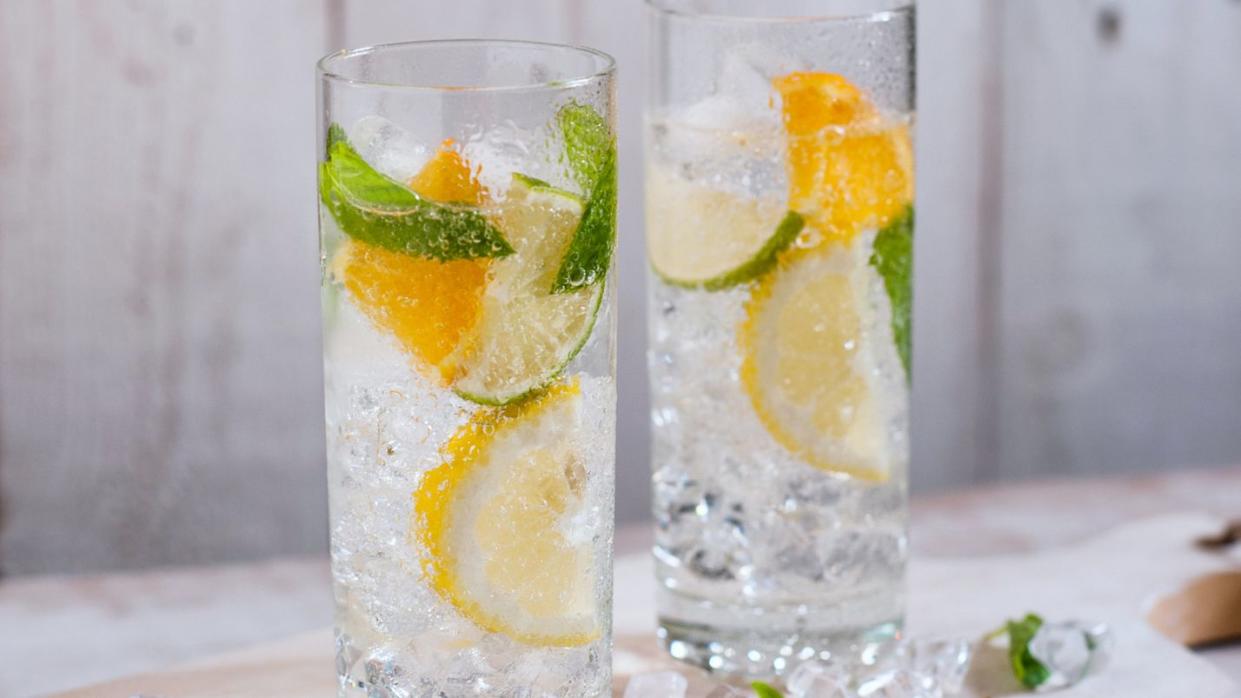
Coffee
Surprise, surprise! Your morning addiction can actually be quite good for you—with a few caveats. First the good news: Research has shown that drinking coffee is associated with a reduced risk of type 2 diabetes, it's rich in chlorogenic acids, among other antioxidants, which are important for eye health, lowers your risk for dementia and stroke, and according to a recent study, may also help fight inflammation.
However, these benefits can be negated by filling your cup with gobs of sugar, sweetened syrups, and lots of cream, says Sassos. So save the caramel lattes and frappuccinos for special treats, and drink your morning joe with a splash of fat-free or plant-based milk for the healthiest wake-up.
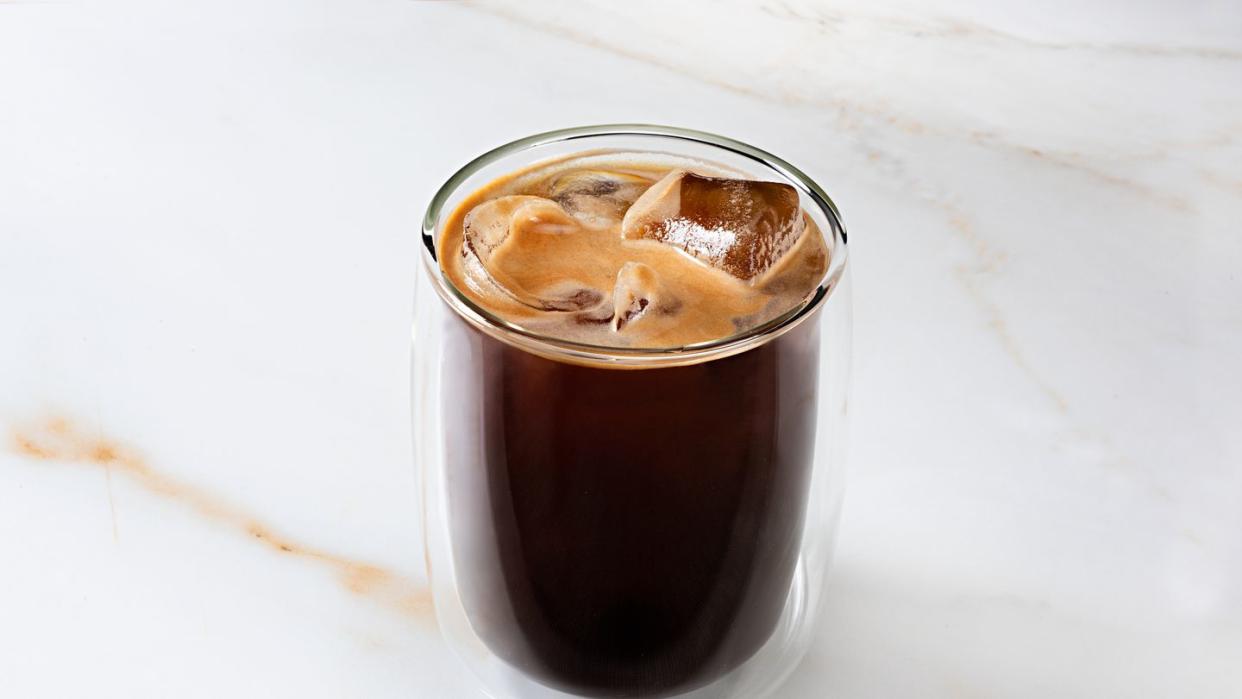
Kombucha
You've probably seem kombucha everywhere lately. The fermented beverage, made with water, tea, sugar, bacteria and yeast, is naturally packed with probiotics, which help restore the balance of friendly bacteria in your gut. When you drink kombucha, you're consuming healthy microbes that support your digestion and overall gut health.
“While kombucha is by no means a magical elixir, it's still an excellent alternative to alcoholic beverages that can count towards your hydration needs,” says Nicole Rodriguez, R.D.N. You'll want to avoid kombucha products featuring artificial flavors and excessive added sugars; instead look for phrases like “naturally fermented” to be sure you’re getting kombucha that’s minimally processed.
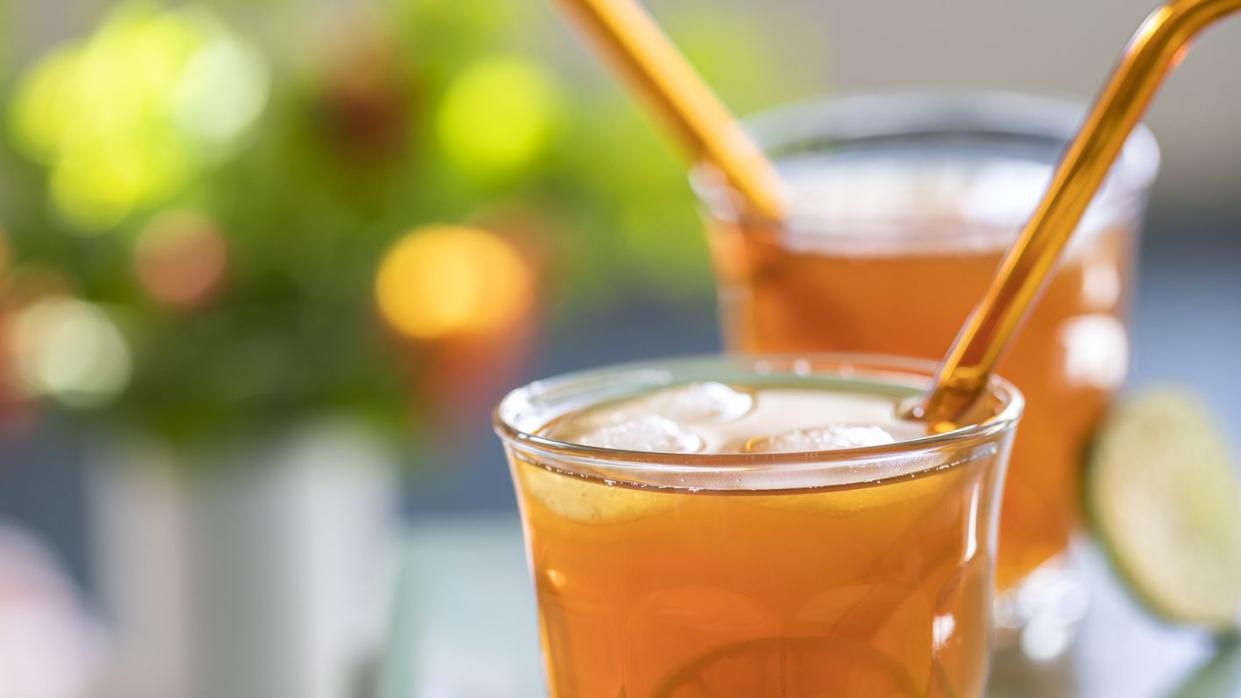
Tea
Tea is one of the most soothing and good-for-you beverages you can drink—it's calorie-free and filled with flavonoids, which help keep your heart healthy. Two of the best to try:
Green tea is a great choice for its vitality benefits and may even aid in blood sugar regulation and metabolic health,” says Davis. It also contains compounds like antioxidant catechins, a class of flavonoids that help protect the body from free radicals and play a role in slowing down the aging process.
Hibiscus tea is made from the leaves of the hibiscus flower with its bright pinkish, red color and tangy, yet refreshing flavor. Rich in antioxidants like vitamin C and flavonoids, it can help ward off disease and support immunity. In fact, drinking just one cup every day may lower blood pressure, according to one study.
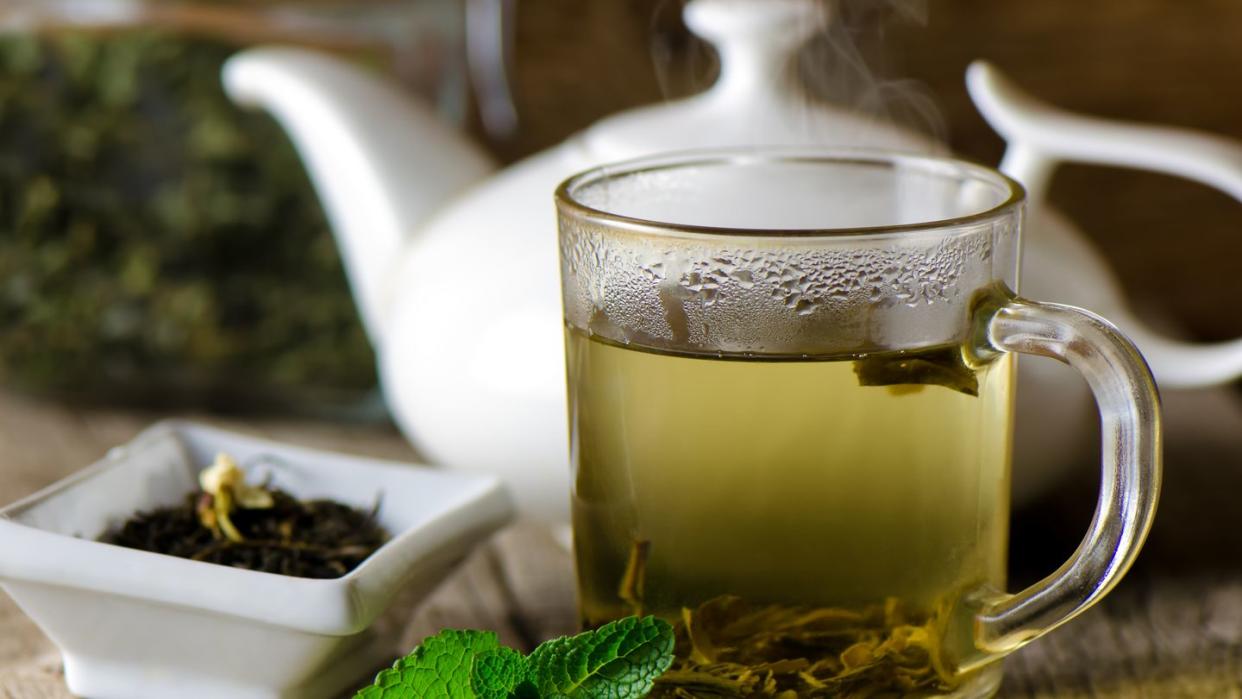
Smoothies
A drink doesn't have to have look like water to be healthy—blend up a smoothie with your favorite fruits and veggies, and you get hydration and a filling snack in one.
“When putting together a smoothie, think protein, fat, fiber and flavor,” says Rodriguez. In addition to carbohydrates in the form of fruit or vegetables, muscle-building protein should serve as the base of your smoothie, whether it be yogurt, milk, cottage cheese or whey protein. Then add a plant-based source of fat and fiber, like nut butter and chia seeds, plus a flavorful ingredient like cocoa powder to make a delicious, nutrient-dense smoothie.
RELATED: The Best Healthy Smoothie Recipes to Start Your Morning.
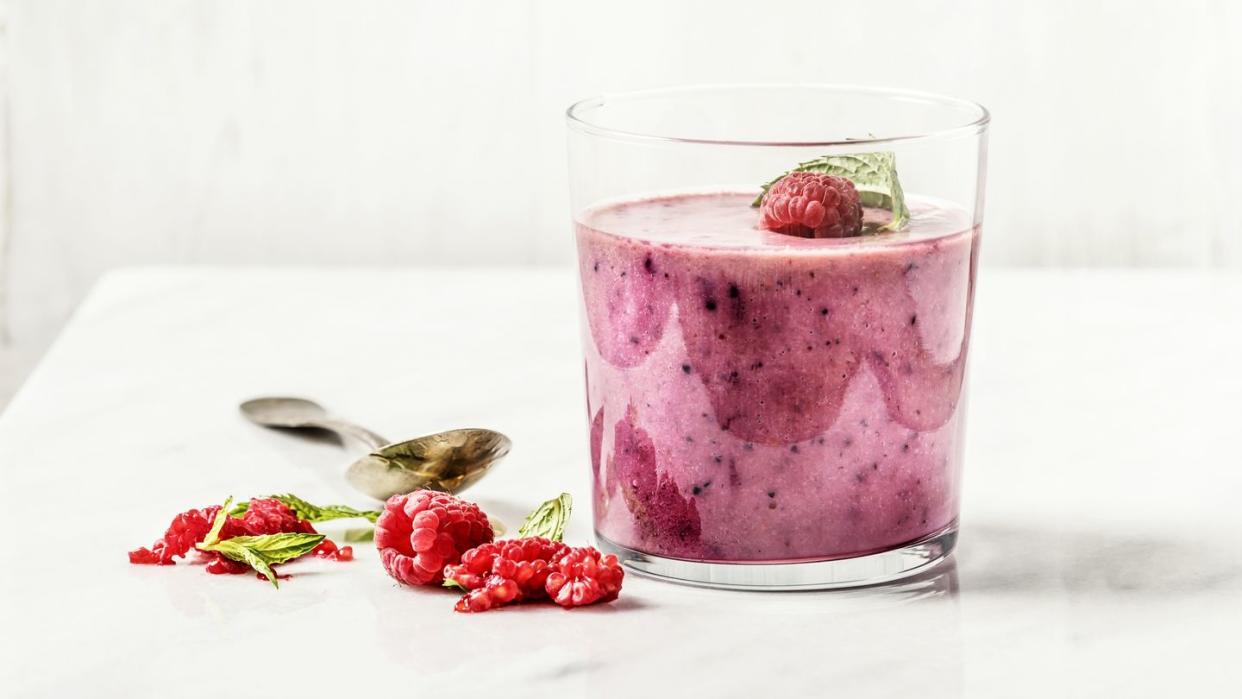
Coconut Water
Coconut water is a popular hydration option that has a sweet nutty taste. Plus, it is packed with electrolytes like potassium, sodium and magnesium that help to maintain fluid balance. “This is a great beverage choice for a post-workout boost,” says Davis, who recommends choosing brands that are “100% coconut water” and being mindful of added sugars and flavoring agents.
Sassos adds that if you don't love the taste of coconut water on its own, try incorporating it into smoothies or mixed with sparkling water.
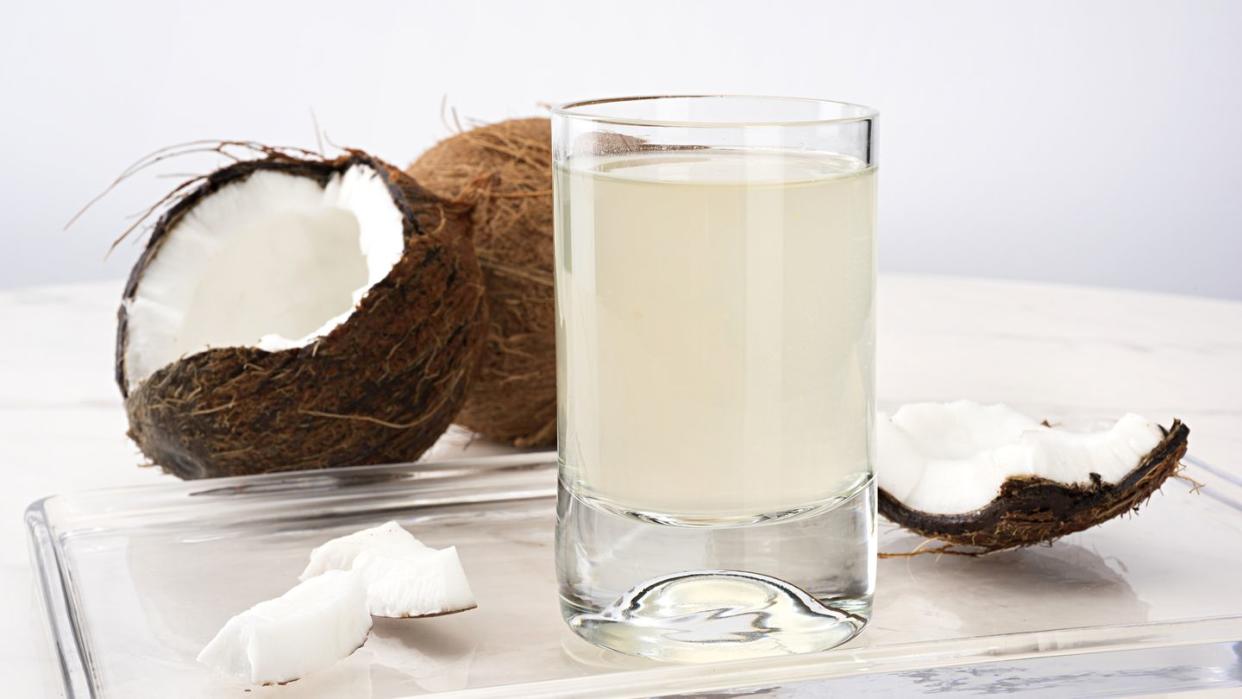
Low-fat and fat-free milk
Low-fat and fat-free milk are both budget-friendly and nutritionally complete beverages. In fact, milk is one of the best sources of calcium, which your body needs to support bone health. It's also packed with key nutrients like B vitamins, phosphorus, potassium and vitamin K. "Low-fat and fat-free milk are both sources of 13 essential nutrients and provide a balance of protein and carbohydrates,” says Rodriguez. If milk typically upsets your stomach, keep an eye out in the dairy aisle for lactose-free versions of these hydrating superstars.
Apart from drinking it straight, you can make your own hot cocoa with milk. Cocoa provides energy-boosting caffeine, increases “feel good” hormones and contains antioxidant-packed polyphenols. To make, add a spoon of cocoa powder to your favorite warm milk, sprinkle in cinnamon and sweetener of your choice to taste, stir and enjoy!
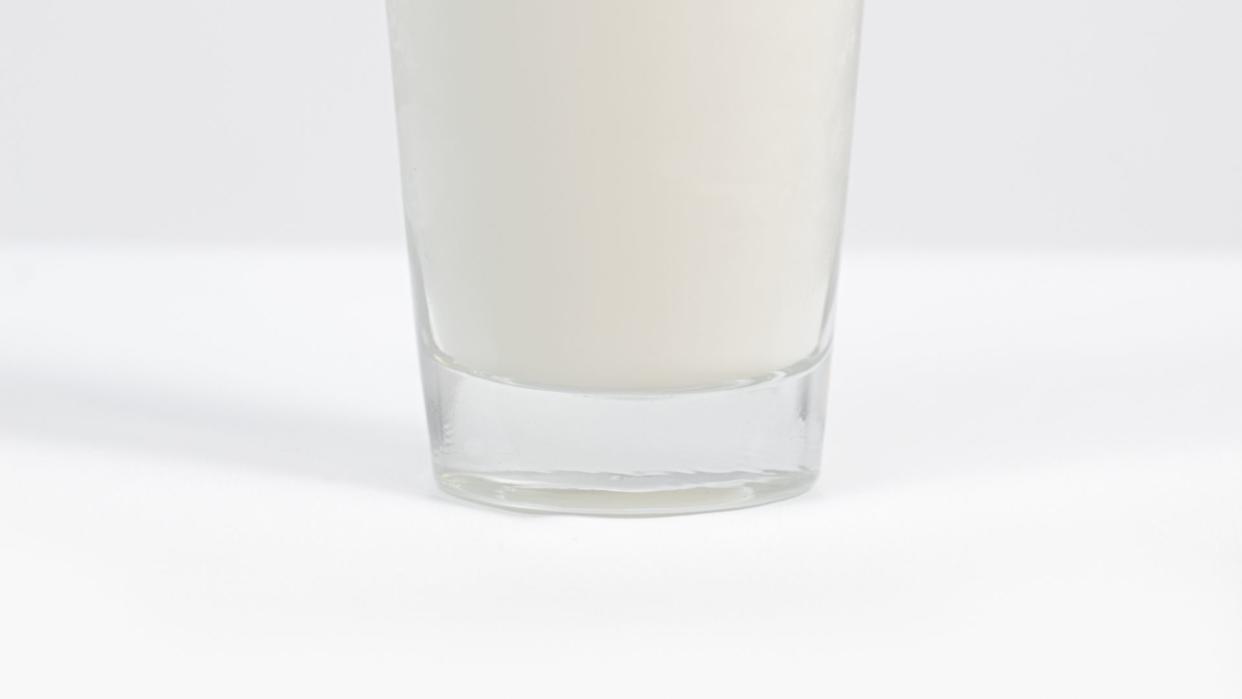
Kefir
Kefir is a fermented milk drink with a tart, creamy taste and texture similar to a drinkable yogurt. It is richer in probiotics compared to many other fermented dairy products and is a source of key nutrients like vitamin D, calcium and magnesium, all of which support healthy bones and a healthy heart. Sassos says that given its probiotic-rich nature, kefir has been shown to support a healthy immune system and even modulate the immune system to suppress viral infections.
Thanks to a protein content of ten grams per one cup, you’ll be on your way to feeling satiated after drinking kefir. If you have a lactose intolerance, this is a great milk alternative, since it’s low in lactose. To enjoy kefir, pour a glass and drink on its own or use it as a base in your breakfast parfait. It also makes a great homemade salad dressing!
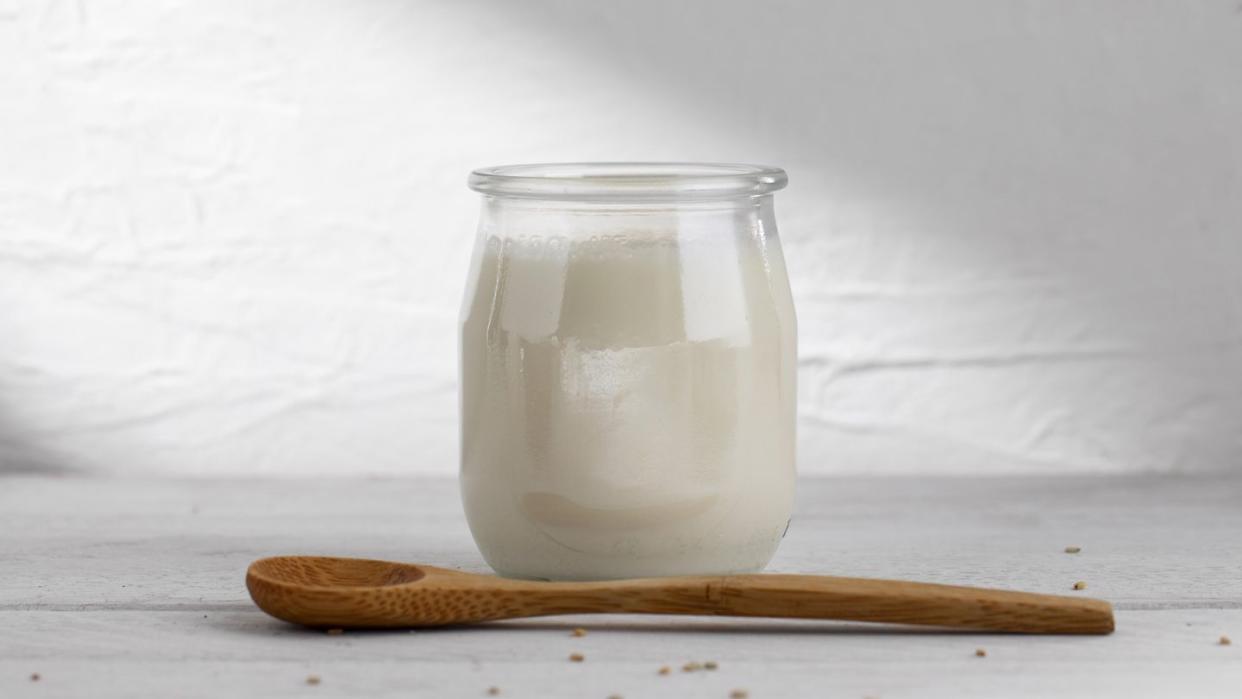
You Might Also Like
